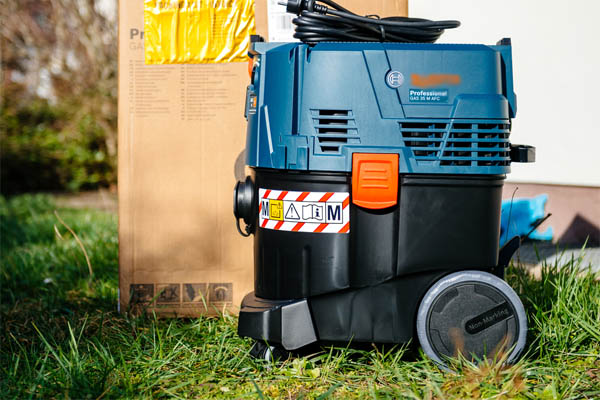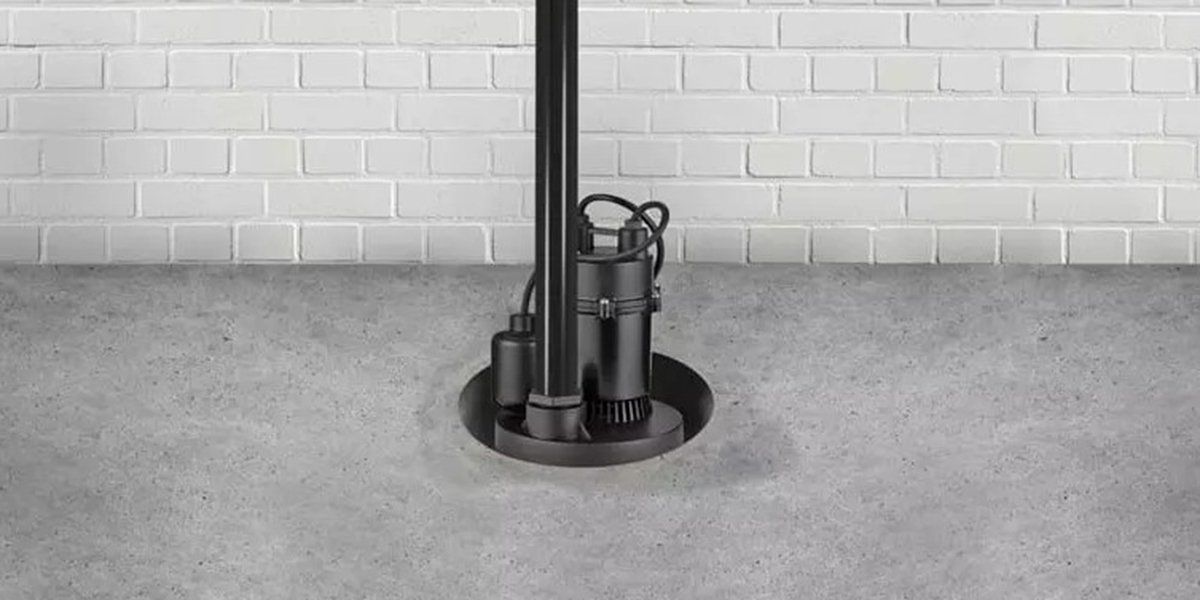Leading Techniques for Servicing a Sump Pump
Leading Techniques for Servicing a Sump Pump
Blog Article
We have stumbled upon this great article about How To Effectively Clean A Sump Pump listed below on the internet and concluded it made perfect sense to share it with you on my blog.

Sump pumps are critical components in lots of homes, specifically in areas susceptible to flooding or too much moisture. They help stop water damage by efficiently removing excess water from cellars or crawl spaces. Nevertheless, like any other home appliance, sump pumps require routine upkeep to ensure they operate successfully when needed one of the most. Cleansing your sump pump is a vital part of its upkeep, and recognizing how to do it appropriately can conserve you from costly repairs and possible catastrophes.
Intro
Keeping a tidy sump pump is vital for its correct functioning and long life. Disregarding this vital job can bring about obstructions, malfunctions, and eventually, water damages to your residential property. For that reason, discovering how to clean a sump pump is essential for home owners who rely upon these devices to keep their basements dry and secured.
Signs of a Dirty Sump Pump
Recognizing when your sump pump needs cleansing is vital for protecting against prospective breakdowns. Some usual indications that suggest an unclean sump pump consist of strange noises throughout operation, reduced water circulation, and visible debris in the pit. If you observe any one of these symptoms, it's necessary to clean your sump pump quickly to avoid any additional problems.
Preparing for Cleansing
Before you start cleansing your sump pump, it's essential to take some security preventative measures. Beginning by shutting off the power to the pump to prevent any type of electric mishaps. Additionally, put on ideal safety gear, such as handwear covers and goggles, to secure on your own from dust, particles, and prospective virus.
Recognizing the Sump Pump
Before diving into the cleansing process, it's important to have a basic understanding of how a sump pump functions. Typically mounted in a pit or basin listed below the basement floor, a sump pump includes several key parts, including a pump, a float button, and a discharge pipe. When water gathers in the pit, the float button turns on the pump, which then pumps the water out via the discharge pipeline, far from the building's foundation.
Detailed Guide to Cleansing a Sump Pump
Shutting down the Power
Begin by disconnecting the power supply to the sump pump to stop any accidents while cleansing.
Looking For Proper Performance
Before re-installing the pump, carry out a fast test to make certain that the float switch activates the pump properly. Pour some water into the sump pit and observe the pump's procedure. If whatever is functioning appropriately, you can reconstruct the pump and reconnect the power supply.
Getting Rid Of Debris and Dust
Utilize a pail or a scoop to remove any type of noticeable debris, dust, or debris from the sump pit. Dispose of the particles appropriately to avoid it from obstructing the pump or the discharge pipeline.
Cleansing the Pump and Float Switch Over
As soon as the pit is clear of debris, very carefully eliminate the pump from the pit. Check the pump and the float switch for any kind of indicators of damages or wear. Make use of a soft brush or towel to clean up the surfaces and get rid of any type of gathered gunk.
Flushing the System
After cleaning the pump and float button, purge the sump pit with clean water to remove any kind of staying dirt or debris. This will certainly aid make sure that the pump operates efficiently and effectively.
Upkeep Tips to Keep Your Sump Pump Clean
Along with regular cleaning, there are a number of upkeep suggestions you can comply with to keep your sump pump in ideal problem:
Conclusion
Cleaning your sump pump is a vital facet of its upkeep and ensures that it operates properly when you need it one of the most. By following the actions laid out in this guide and incorporating regular upkeep into your regimen, you can extend the life expectancy of your sump pump and safeguard your home from water damages.
6 STEPS ON HOW TO CLEAN A SUMP PUMP PROPERLY
UNDERSTANDING SUMP PUMPS
Your sump pump plays a crucial role in protecting your home by managing and removing excess water. It primarily functions as a “shield”, guarding your basement against the damaging effects of water accumulation. The pump is housed in a sump pit in the lowest part of your basement, and its job is to pump out any water that collects there.
During heavy rainfalls or when snow melts rapidly, water can infiltrate your basement, posing potential risks like flooding, structural damage, and harmful mold growth. Here, the sump pump springs into action, pumping out the intruding water and directing it away from your home.
SAFETY FIRST
Before cleaning, remember to prioritize safety. Disconnect the sump pump from the power source to prevent any accidental electric shocks. Also, wear sturdy gloves to protect your hands from any sharp or dirty components within the pump.
REMOVE THE SUMP PUMP
After ensuring your safety, the next step is to remove the sump pump from its pit. Doing this might require careful maneuvering as you don’t want to damage any pump components. Once removed, clean the sump pit to remove any accumulated debris or sludge.
INSPECT THE PUMP
Inspect the pump for any visible signs of wear or damage. Check the power cord, float switch, and impeller housing. If any components look worn out or damaged, consider replacing them to ensure optimal performance.
CLEAN THE PUMP
Thoroughly clean the pump with warm, soapy water. Make sure to rid it of any dirt, gravel, or other debris that might impede its performance. You can use a toothbrush to clean the small, hard-to-reach parts of the pump.
REINSTALL THE SUMP PUMP
Reinstall the pump into the sump pit Make sure it’s positioned correctly to remove the water effectively Once it’s back in place, reconnect it to the power source TEST THE PUMP
Finally, pour some water into the pit to ensure the pump works correctly. It should start automatically and begin pumping out the water; if it doesn’t, check the power source and the positioning of the pump.
Remember, while cleaning your sump pump is an essential part of home maintenance, hiring a professional plumber for a thorough inspection and cleaning at least once a year is also important. This will ensure that your pump is in optimal condition, ready to protect your home from potential water damage.
BEST PRACTICES FOR CLEANING SUMP PUMP DISCHARGE PIPES
Regular Inspection: Regularly inspect your discharge pipes, especially during heavy rainfall or snowmelt periods. Look for any signs of blockage or damage. Early detection of problems can prevent serious issues down the line. Periodic Cleaning: Over time, sediment and debris can accumulate in the discharge pipes, impeding the flow of water. Regular cleaning helps keep the pipes clear and functioning efficiently. You can use a high-pressure water jet to effectively clean the pipes. Insulation During Winter: In colder climates, discharge pipes can freeze, blocking the outflow of water. Protect your discharge pipes from freezing temperatures by insulating them with foam pipe insulation. This will ensure the sump pump can continue to discharge water even in freezing conditions. Proper Positioning: The discharge pipe should be positioned to direct water away from your home’s foundation. Improper positioning can lead to water seeping back into the basement. Ensure the pipe is long enough and angled correctly. Installation of a Check Valve: A check valve prevents water from flowing back into your sump pit after the pump has pushed it out. Installing a check valve helps maintain the efficiency of your sump pump and reduces the risk of flooding. Minimize Pipe Turns: Every curve or turn in the discharge pipe can decrease the efficiency of water flow. By minimizing turns and bends in your discharge pipe, you can increase the efficiency of your sump pump. https://www.fullspeedplumbing.com/how-to-clean-a-sump-pump-properly9999/

I am just very excited about Cleaning & Maintenance Tips for Your Home's Sump Pump and I'm hoping you appreciated the new blog posting. Enjoyed our post? Please quickly share it. Help someone else find it. Thanks a lot for going through it.
Call Us Today Report this page